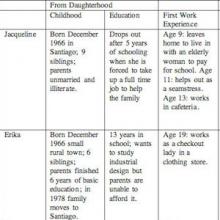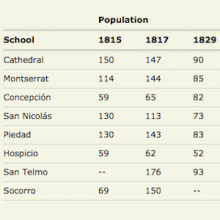South America

The International Children's Digital Library
The International Children's Digital Library is a feast for children who are bookworms. It is also a treasure trove for teachers of reading, literature, science, social studies, and world cultures or geography. Scholarly researchers will find in its global collection a wealth of material forShort Teaching Module: Gender and Race in Colonial Latin America
When I teach a survey of the colonial history of Latin America, I often focus on the era’s cultural history, and specifically on the issue of hegemony and resistance.
Scandal at the Church: José de Alfaro Accuses Doña Theresa Bravo and Others of Insulting and Beating His Castiza Wife, Joséfa Cadena (Mexico, 1782)
Systems of honor in colonial Mexico meant that insults were more than just Swords. Utterances that defamed men and women of good reputation had to be answered or the slight to their personal status within the community would be permanent.

Long Teaching Module: Gender and Health in Latin America, 1980-2010
Several decades have passed since the conclusion of what the United Nations addressed as the “Decade for Woman” (1975-1985). In many regions of the world, patriarchal relationships between men and women have been toned down, and hierarchies in gender roles have become less rigid.

Vistas: Visual Culture in Spanish America, 1520-1820
Students could speculate on who made the objects, who used them, and how they were used. This would give them a sense of the kind of interpretive work done by historians.
Long Teaching Module: Parents, Children, and Political Authority in 19th century Argentina
Between 1810 and 1860, Argentina emerged as a deeply divided nation. One of the main problems that remained unresolved throughout the 19th century was how power would be shared between Buenos Aires, the capital, and the rest of the provinces.
Gender and Health in Latin America: Personal Account, Education (Honduras)
Access to education and the willingness to learn are crucial ingredients to improve the health of women throughout the world. Good health depends on an understanding of the human body, but also requires the knowledge to maintain a healthy lifestyle.
Gender and Health in Latin America: Interview, Violence Against Women (Uruguay)
Violence against women may take place within families as well as in settings outside of the domestic environment. Policy makers, academics, and activists have long sought to identify root causes of violence.
Gender and Health in Latin America: Interview, Reproductive Rights (Brazil)
In the 1950s, when the first contraceptive pills were tested in Puerto Rico, politicians, health administrators, and Church officials worldwide began to discuss human reproduction in new ways.